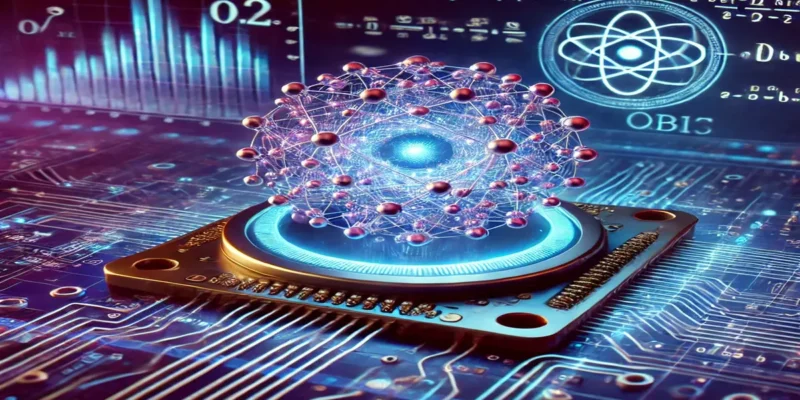Technology is advancing faster than ever. Especially in the computing space. And in the race to build the fastest and most powerful computers, one concept seems to stand out from the rest. That is the idea of quantum computing.
Many believe that it will be an absolute game-changer. Others are a bit skeptical of its potential im[act. That said, many are left questioning how quantum computing is different from the computers we use every day. For something that seems coming straight out of a sci-fi movie, the curiosity is natural. So, here is quantum computing explained as we unmask what this concept is all about.
What Is Quantum Computing?
Let’s start with the basics. Quantum computing is a revolutionary approach to processing information. Unlike classical computers, which use bits to represent data as 0s and 1s, quantum computers use quantum bits or qubits. And here’s where things get fascinating: thanks to the principles of quantum mechanics, qubits can exist as both 0 and 1 at the same time. This phenomenon, known as superposition, allows quantum computers to handle massive amounts of data simultaneously.
But that’s not all. Quantum computing also takes advantage of entanglement — a bizarre property where qubits become linked in such a way that the state of one instantly influences the state of another, no matter how far apart they are. This interconnectedness boosts computing power beyond what’s imaginable with today’s most powerful supercomputers. As technology advances, quantum computing is expected to revolutionize various industries, including artificial intelligence, cybersecurity, and even the development of the best smartphones to buy in 2025, making them faster and more efficient than ever before.
How Does Quantum Computing Work?
To understand how quantum computing works, it helps to compare it to classical computing. In a regular computer, data is processed through a series of logical operations performed on bits. The processing power is limited by how fast these bits can be flipped between 0 and 1.
Quantum computers, however, operate on qubits which can be in multiple states simultaneously. Think of it like spinning a coin. While a classical bit is like a coin showing heads or tails, a qubit is like a spinning coin showing both heads and tails until it’s measured. This ability to exist in multiple states allows quantum computers to perform complex calculations at a speed and scale that regular computers simply can’t match.
Why Does Quantum Computing Matter?
Okay, so quantum computers are powerful. But why does that matter? Well, their extraordinary computing power could transform industries ranging from medicine and finance to artificial intelligence and cryptography. For example:
Drug Discovery: Quantum computers could help us simulate molecular interactions with astonishing precision, speeding up the development of new drugs and treatments.
Cryptography: While quantum computing poses a threat to existing encryption methods, it could also create unbreakable security protocols through quantum encryption.
Optimization Problems: From supply chains to financial modeling, quantum computers can solve complex problems far more efficiently than classical systems.
Quantum Computing vs. Supercomputers
You might be wondering, how do quantum computers compare to the most advanced supercomputers we have today? While supercomputers are incredibly fast at processing massive amounts of data, they still operate using classical bits. This means they process one calculation at a time, albeit at an insanely fast rate.
Quantum computers, on the other hand, can process multiple calculations at once due to superposition and entanglement. While today’s quantum computers are still in their early stages, their potential already far surpasses that of even the most powerful supercomputers.
The Challenges of Quantum Computing
Of course, quantum computing is not without its challenges. Creating and maintaining qubits in a state of superposition is extremely difficult. Even the slightest interference from the environment can cause them to lose their quantum state, a problem known as decoherence. Additionally, building large-scale quantum computers requires highly advanced materials and cooling systems.
When Can We Expect Quantum Computers to Become Mainstream?
The truth is, fully functional quantum computers that can outperform classical systems in every way are still years away. However, tech giants like Google, IBM, and Microsoft are making significant progress, and researchers around the globe are racing to unlock the true potential of quantum computing.
The Future of Quantum Computing
So, is quantum computing going to replace classical computers? Not exactly. Instead, it’s more likely that quantum computers will work alongside classical systems, handling tasks that are too complex for traditional machines to process.
From revolutionizing artificial intelligence to solving climate change models, the possibilities are endless. And while we might not have personal quantum laptops anytime soon, the technology is advancing rapidly.
In Summary
Quantum computing is still a growing concept that is far from widespread adoption. But, once its foundations are laid, it will shape the future of technology like we never imagined. It won’t impact just the computing or communications space. Rather we’ll see advancements in astrophysics, mathematics, and even in AI.
Finally, as research continues and technology evolves, understanding the basics of quantum computing could be our ticket to staying ahead of the curve in the upcoming era. After all, the quantum revolution is only just beginning, and we don’t want to miss out on its perks.








